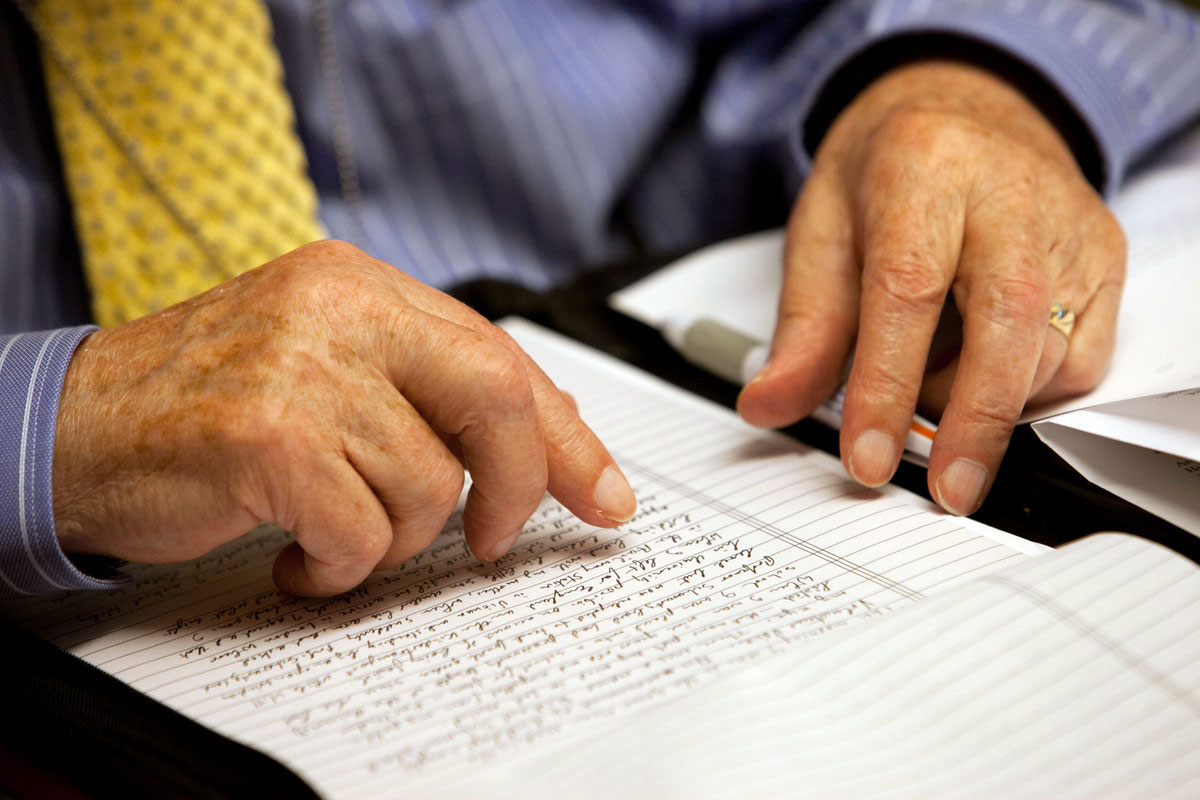Read reflections and testimonies written by Holocaust survivors in their own words.
-
Dreams
October 23, 2019
June, 1944. My family was in a concentration camp; my mother, Rosalia, my sister Shosha, 13 years old, and me, Agi, 14 years old. My father, Zoltan, had died a few months earlier, on the same day that the Germans occupied Hungary.
-
America
October 23, 2019
I was six years old when I first heard of Americans. The first ones I saw were our liberators. It was in the summer of 1944, and I was hiding in a Catholic boarding school in Montfermeil, a suburb northeast of Paris. Paris was liberated on August 25, 1944, and we were liberated two days later. A student who had left the school came back shouting, “The Allies are coming! The Allies are coming!” So, we all went to the main street to welcome them: tanks, trucks, and jeeps with soldiers with different kinds of helmets and smiles on their faces, giving away chocolate, chewing gum, and even cigarettes. They were our liberators. The headmistress of my school, who was probably the one who knew about my situation as a hidden Jewish child, was holding my hand. (I was the youngest student in that school, and she wanted to make sure I was safe.) I was told they were Americans, and it was the first time I heard of Americans and America. I had heard of the Germans, of course, of the English, of the Italians, but who were these boys? Where did they come from? I was just six, after all.
-
“Volunteering” for Service in Poland
October 23, 2019
Government Agricultural Farms known as Panstwowe Gospodarstwa Rolnicze (PGRs) were established in the late 1940s on large farms confiscated from rich farmers. These farms were now owned by the government, as well as the large farms in the Regained Territories incorporated into Poland from Germany after World War II. They were fashioned on the Soviet Kolkhozes (collective farms), and were equally unproductive. Many farmers left the PGRs for a somewhat better life in towns and, as a result, there was a shortage of farm workers.
-
Small World
October 23, 2019
My 13th birthday on May 1, 1947, was approaching, and my parents decided that I should have a bar mitzvah. At that time my family lived in Wałbrzych, a formerly German town where many of the refugees from the Polish territories taken over by the Soviet Union had settled. Wałbrzych was a “Wild West” town, full of people from all over Poland—Germans waiting deportation to Germany, criminals, looters, fortune seekers, and about 4,000 Jews. We left Drohobycz, where I was born, because it became a part of the Ukrainian Republic of the Soviet Union.
-
My “Career” in the Polish Army
October 23, 2019
In the 1950s in communist Poland, military service was mandatory for all men starting at age 18. Physically fit university students had to attend officer training courses. Most high-ranking officers of the Polish Armed Forces were Poles born and educated in Russia. Each university trained officers in a different specialty; ours was military engineers, sometimes called Sappers. One day each week, in my case on Tuesday, we would put on our uniforms and attend classes and practice at the shooting range. We studied the structure and strategy of the US Armed Forces as the enemy that we eventually might face in the next war.
-
My Friends Sidi and Milek Natansohn
October 23, 2019
I met Sidi (Sidonia) in July 1948 at my first job in this country. I arrived in the United States in April 1948. We worked side by side as floor girls in a clothing factory and quickly became good friends. We talked a lot as we were working, but I got caught talking and was fired as a result.
-
Many Times Born, Many Times Died
November 14, 2018
All of us have had the experience of being born one time. If you are a Holocaust survivor, like me, you may have been born many times and died many times, as well.
-
Living Up to Our Values
November 14, 2018
When I arrived in the United States after World War II at age 16, I was very anxious to move on with my life and not let my experiences during the Holocaust define me. I got a job in a grocery store and with help from my brother-in-law, I rented a room from a Hungarian family so I could be independent. That helped because I spoke Hungarian. My biggest problem was I did not speak or understand a word of English. So, I enrolled in night school. I was taught English, but also learned about US history and the Constitution. The teacher, Mrs. Durst, was a very nice, elderly lady who stressed how great American democracy is, that we are a country of laws. I knew about democracy because I grew up in Czechoslovakia and I went to Czech schools until the fourth grade. Then the war started and our school was closed.
-
Schiffchen oder Hütchen (Little Boat or Little Hat)
November 14, 2018
I always marvel at the ability that my friends and colleagues have to remember the small details of their childhood. I, too, want to see the world the way I experienced it when I was a very young girl. For me, it is just so difficult to recollect, a demand on my mind. I am sure that it is not because I want to erase it due to what I went through. I just worry because I cannot remember. It makes me feel good when my daughter, Terese, assures me that it is “because there is just a lot to remember.”


